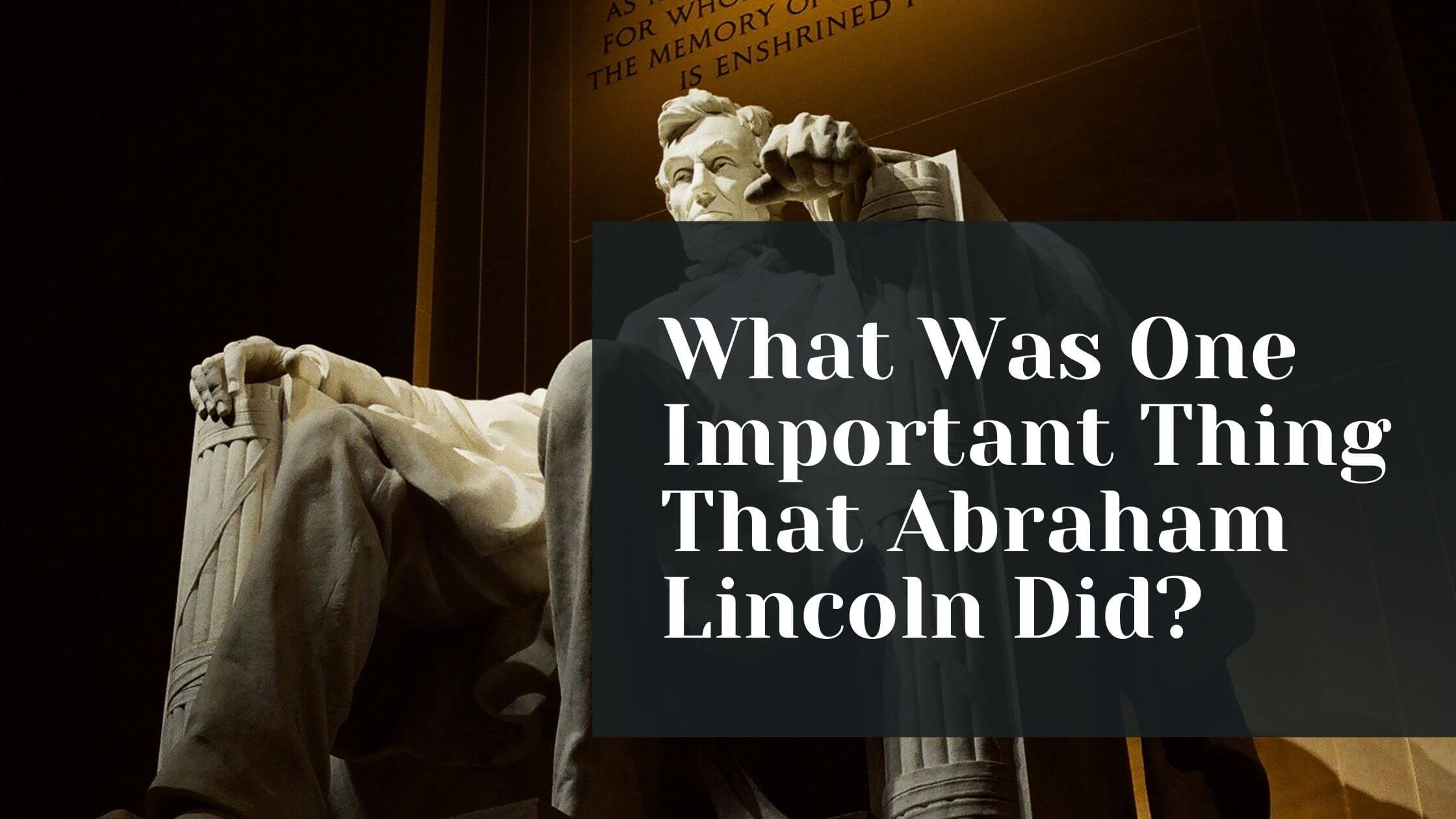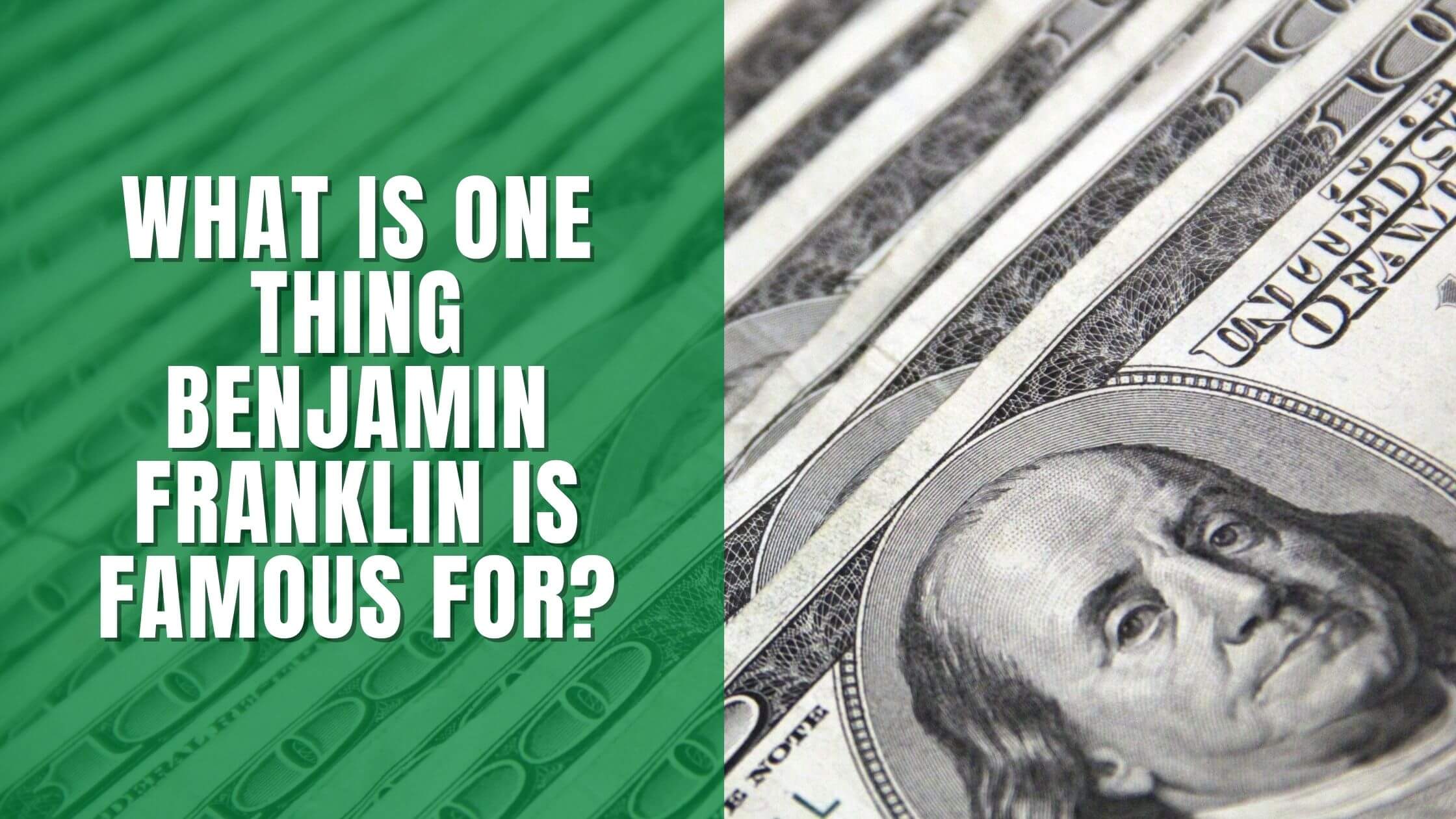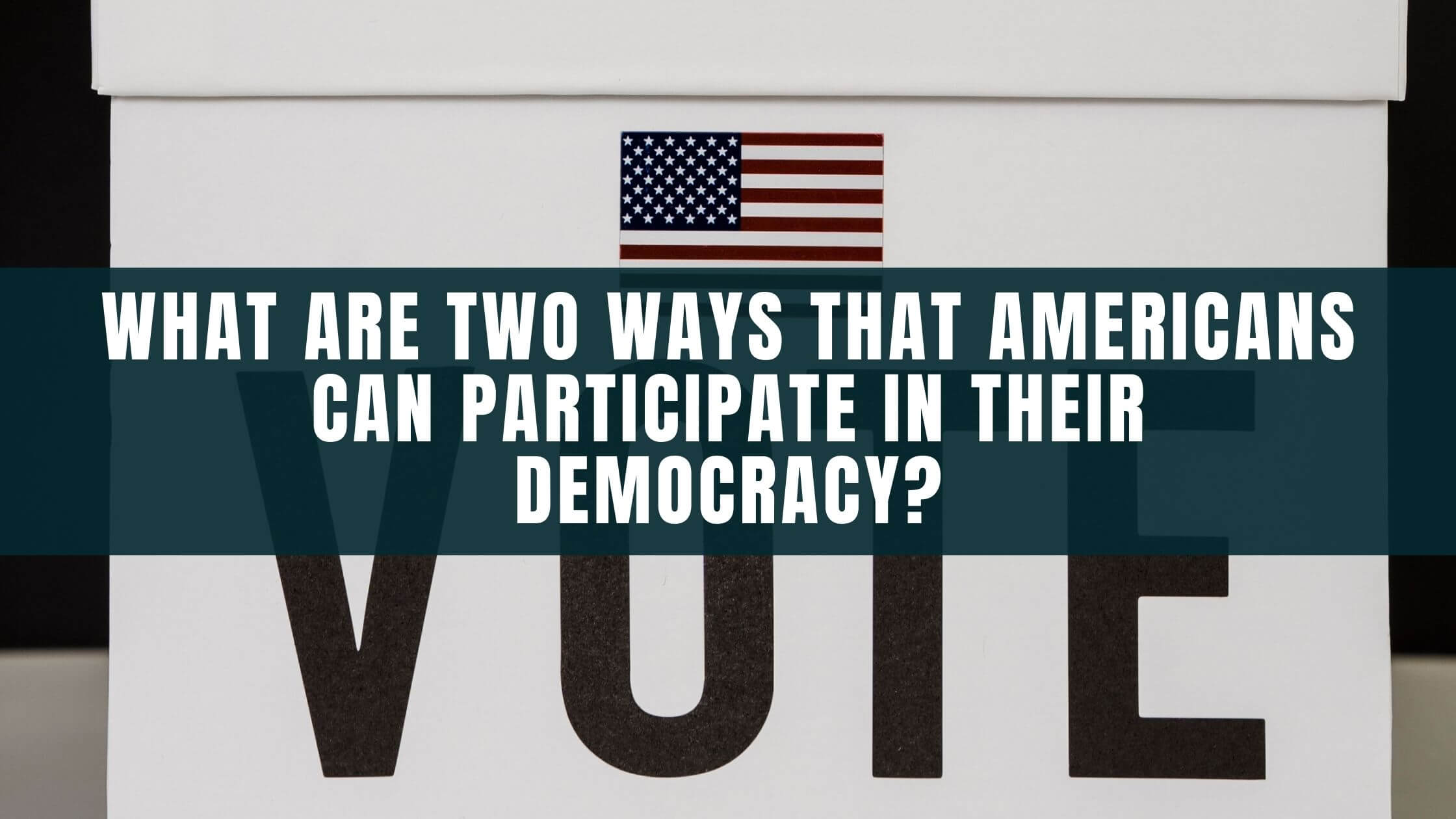Table of Contents
ToggleTo pass the US citizenship test, you will have to answer 10 of a possible 100 questions. The following question is from the USCIS test.
What was one important thing that Abraham Lincoln did?
Acceptable Answers:
- freed the slaves (Emancipation Proclamation)
- saved (or preserved) the Union
- led the United States during the Civil War
The following is a full explanation of the USCIS question:
President Abraham Lincoln’s Achievements
While he did not immediately want to end slavery at the start of the Civil War, Lincoln did so nonetheless. He passed the Emancipation Proclamation during the war, which made all slaves in the south free according to northern laws. Along with George Washington, President Lincoln is one of the most famous people in American history.
Following his assassination, the 13th Amendment (permanently ending slavery) took several months to pass. The practice still had its defenders, and even after the Confederacy’s defeat, there was considerable resistance to bringing it to a complete halt. However, abolitionists were on the right side of history, and the 13th Amendment was eventually passed.
What Was the Emancipation Proclamation?
The Emancipation Proclamation did not quite make slavery illegal everywhere in the United States. It only freed slaves in rebel states, not in parts of the north where the practice continued. Lincoln also ordered it during the war, so slavery continued in the south until Robert E. Lee and other Confederate generals surrendered.
The Aim of the Emancipation Proclamation
The Emancipation Proclamation was intended to weaken the south. Lincoln first threatened the south with the preliminary Emancipation Proclamation to end the rebellion. The idea was that if he threatened to declare all enslaved people in the south free, the rebels would back down.
After it became clear that the war would go on for some time, Lincoln passed the proclamation to damage the southern economy and weaken the south’s morale. He knew the southern economy relied heavily on slavery and that the Emancipation Proclamation would encourage slaves to become rebellious. Many of them would attempt to escape to the north, and all would want the north to emerge victorious.
After the Emancipation Proclamation, many African Americans joined the Union forces, and there were about 200,000 African American soldiers in the Union army by the end of the war. Each time the Union occupied a state, they freed the enslaved people, which further weakened the Confederate economy.
Lincoln Became More Anti-Slavery As the War Went On
It is often pointed out that Lincoln stated that if he could preserve the Union without freeing the slaves, he would. However, he still deserves credit as a liberator.
During the war, he said that “slavery is the root of the rebellion” and realized that he could gain international support if he opposed it. He was also aware that both white and black foreigners would be more willing to fight if the war was focused on the issue of slavery.
A Powerful Leader During the Civil War
Lincoln’s powerful leadership made the war appear necessary, morally justifiable, and winnable. Even though the north had a distinct advantage, the war was long and costly, and 300,000 Union soldiers and about 2% of the entire United States population died.
Wartime presidents always have to deal with people who oppose conflict, whether the wars are deemed necessary or not. There were many people in the government that advocated for a swift end to the Civil War, but Lincoln remained steadfast. His powerful Gettysburg address inspired his supporters to pursue complete victory.
Unable to find enough volunteer soldiers to bring the war to its conclusion, Lincoln turned to conscription, a risky political move. Despite resistance, many drafted soldiers fought well against the south, which became gradually weaker as the war continued.

Get Smarter on US News, History, and the Constitution
Join the thousands of fellow patriots who rely on our 5-minute newsletter to stay informed on the key events and trends that shaped our nation's past and continue to shape its present.
Lincoln’s Assassination
In April 1865, Lincoln was attacked by an assassin named John Wilkes Booth at Ford’s Theater. The killer fired a small concealable pistol at the back of Lincoln’s head, mortally wounding him.
He proceeded to pull a dagger and stab Lincoln’s guest, Major Henry Rathbone, as he lunged at him before leaping over the balcony. Though he fractured his leg, he kept running, reached his horse, and rode away as he attempted to escape his crime.
Lincoln, the 16th president, died before the Thirteenth Amendment was ratified and is honored by the Lincoln memorial and at Mount Rushmore.
Another attacker, Lewis Powell, broke into Lincoln’s Secretary of State’s home, badly wounded him with a knife, and then fought his way past Powell’s sons before escaping. John Wilkes Booth was shot and mortally wounded the same day, and Powell was captured and hanged.
The 13th Amendment
Even months after Lincoln was assassinated and the country was reunified, it was difficult to pass an amendment that permanently ended slavery. Congress initially rejected it as the bill failed to reach the required two-thirds majority in the House of Representatives.
However, slavery had already been illegal in Britain, Mexico, Canada, and many other nations for some time. Those seeking its end were eventually able to convince Congress that it was a cruel and archaic practice that should end right away. The 13th Amendment was followed by the 14th and 15th Amendments, which tried to protect minorities but were only partly successful.
Preserving the Union
More than anything else, Lincoln feared that the country would permanently split into two, or more, weaker and hostile countries. If the country was no longer united, it would be more vulnerable to an outside threat.
Reconstruction of the South After the War
Another thing Abraham Lincoln deserves credit for is reconstruction. Lincoln did not want the south to hold animosity towards the north indefinitely, thereby sowing the seeds for another rebellion. He helped rebuild the southern economy and ensure that there was never another civil war.
Lincoln’s Other Achievements
The progressive nature of income tax, where richer people pay a larger percentage, began when Lincoln signed the Revenue Act of 1862. He established an organization that later became the IRS. He created land grants for colleges, as long as they taught military tactics as well as engineering and agriculture.
Lincoln also created a new national bank and national currency with the National Banking Act. He built canals and railroads that helped the country develop economically. He also filed a patent for an inflatable device that could move boats across obstacles and passed the 1862 Homestead Act that helped poor people find land.











